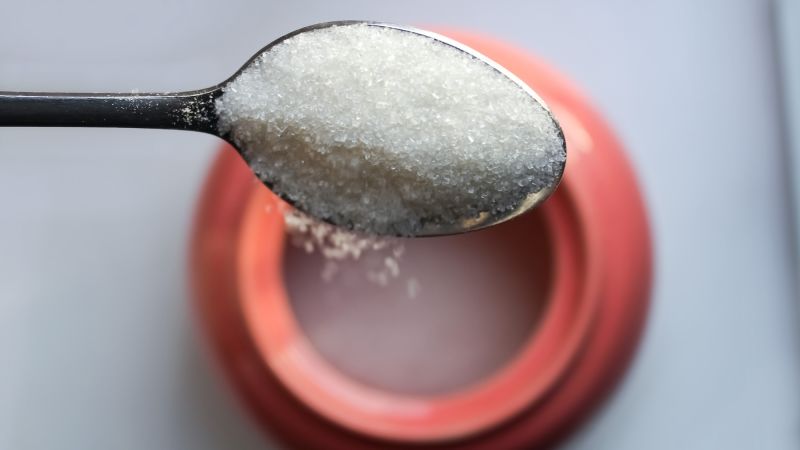
Sugar in the first 1,000 days after conception linked to health issues later in life, study says
CNN
The holiday season is nearly upon us and it’s easy for a child’s sweet tooth go wild. However, new research shows that it may be beneficial to cut back how much sugar young children consume.
The holiday season is nearly upon us and it’s easy for a child’s sweet tooth go wild. However, new research shows that it may be beneficial to cut back how much sugar young children consume. A study published Friday in the journal Science found that reducing sugar in the first 1,000 days after conception – through gestation up to age 2 – may cut a child’s risk of chronic illnesses in adulthood. The researchers found that reducing sugar consumption in this window decreased the type 2 diabetes risk by about 35% and the risk of high blood pressure by roughly 20%. They also found a delay in disease onset of four and two years, respectively. The research team looked at data from before and after the end of the United Kingdom’s World War II-era sugar rationing in September 1953. In January 1940, the UK began rationing to allow “fair shares” of food for the country during the wartime shortage, according to the Imperial War Museums. Access to foods like sugar, fats, bacon, meat and cheese was limited. When the rationing of sugar and sweets ended in September 1953, the average adult’s daily sugar consumption in the UK nearly doubled almost immediately, from about 40 grams to 80 grams.

Among the eight people Robert F. Kennedy Jr. announced would make up his new group of outside vaccine advisers to the US Centers for Disease Control and Prevention are an emergency physician who posted Islamophobic commentary on social media and two doctors who were paid to provide expert testimony in trials against a vaccine maker.

There’s a video on Luka Krizanac’s phone phone that captures him making coffee at home on an espresso machine. It’s the type of video anyone might take to show off a new gadget to friends or recommend a favorite bag of beans. But the normalcy is exactly what makes it extraordinary for Krizanac – because just a few months ago, he didn’t have hands.

 Run 3 Space | Play Space Running Game
Run 3 Space | Play Space Running Game Traffic Jam 3D | Online Racing Game
Traffic Jam 3D | Online Racing Game Duck Hunt | Play Old Classic Game
Duck Hunt | Play Old Classic Game









